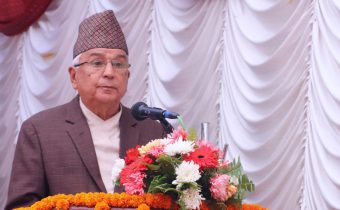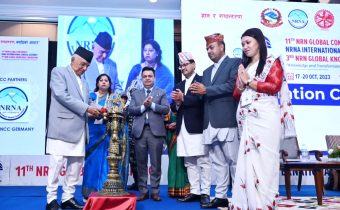KATHMANDU: The Supreme Court (SC) of Nepal has rendered a significant verdict, declaring “triple talaq,” a practice under Sharia law in the Muslim community, legally invalid.
This ruling emerged from a case involving polygamy, with Manauwar Hasan and Meena Hasan as the defendants, filed by Savia Hasan.
Manauwar’s marriage to Meena followed his divorce from Savia. In 2067 BS, the district court in Kathmandu cleared Manauwar and Meena of polygamy charges. Subsequently, the Patan Appellate Court rectified the district court’s decision, acquitting Meena but sentencing Manauwar to one year in prison and a five-thousand-rupee fine.
A joint bench of Supreme Court Justices Tank Prasad Moktan and Hariprasad Phuyal ruled that polygamy had indeed occurred in this case. The Supreme Court judgment highlighted the Appellate Court’s decision to sentence Manauwar to one year in prison and impose a five-thousand-rupee fine.
The Supreme Court also referred to a precedent set by the Supreme Court of India, which had deemed “triple talaq” arbitrary and illegal. The Nepalese Supreme Court underscored that arbitrary divorces are considered criminal acts.
Regarding divorce in the Islamic community, the Nepalese law does not recognize it, as the unified law applies to all communities and sects. The court emphasized that similar to arbitrary divorces, “triple talaq” is now deemed a criminal act in various countries. Therefore, the court stated that there is no exemption for second marriages when they are not recognized by the law.
In the Muslim community, divorce has traditionally been considered the prerogative of the husband.

















